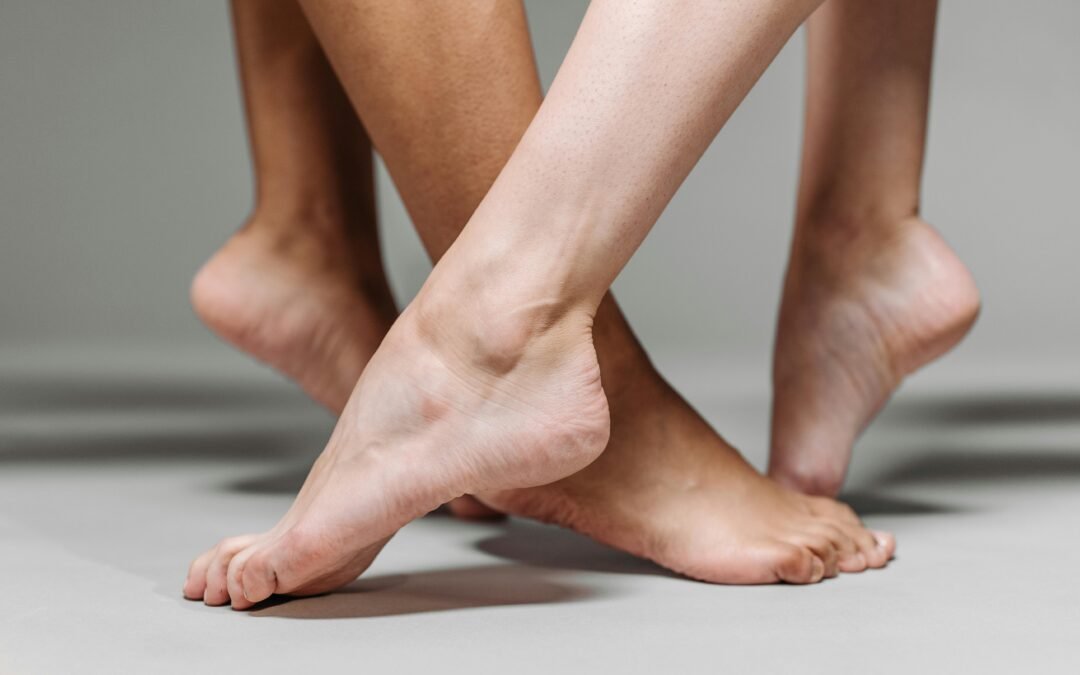Reflexology is a holistic therapeutic practice that involves the application of pressure to specific points on the feet, hands, and ears. This technique is based on the principle that these areas correspond to different organs and systems in the body. Practitioners believe that stimulating these points can improve overall health and promote relaxation, potentially alleviating various ailments. Reflexology is often utilized in complementary medicine, working alongside traditional medical treatments.
Key Features of Reflexology:
- Holistic Approach: Reflexology addresses the entire body rather than just the symptoms of an ailment, aiming to create balance and wellness throughout.
- Pressure Points: Reflexology is based on specific pressure points that correspond to various body parts, each offering different health benefits.
- Promotes Relaxation: The practice is known to promote deep relaxation, which is beneficial for reducing stress and anxiety levels.
What is the Origin of Reflexology?
The origins of reflexology can be traced back thousands of years and are believed to have developed in ancient civilizations such as Egypt, China, and India. The earliest documented evidence of reflexology appears in the American Journal of Public Health in 1913 when a drawing depicting foot reflexology was discovered in the tomb of an Egyptian physician.
Historical Background:
- Ancient Egypt: Egyptian hieroglyphics depict reflexology practices, showing that the Egyptians believed in the connection between specific body points and overall health.
- Traditional Chinese Medicine: In Chinese medicine, reflexology aligns with concepts such as qi (life force) and meridians. Techniques such as acupressure illustrate the longstanding belief in the body’s interconnectedness.
- Modern Development: Reflexology, as we know it today, was developed in the early 20th century by Eunice Ingham, who mapped the feet and hands to different bodily organs, setting the foundation for modern reflexology practices.
How Does Reflexology Work?
Reflexology works on the premise that all body parts are interconnected. When pressure is applied to a reflex point, it is believed to stimulate the corresponding organ or area. This stimulation can encourage physiological changes in the body, potentially facilitating healing and improving overall well-being.
Mechanisms of Action:
- Nervous System Response: Reflexology is thought to stimulate the autonomic nervous system, leading to a state of balance and relaxation.
- Circulation: The practice can enhance blood circulation, promoting better oxygenation and nutrient delivery to tissues.
- Release of Endorphins: Reflexology may stimulate the release of endorphins, which help reduce pain and promote feelings of well-being.
- Stress Relief: By promoting relaxation, reflexology can help lower stress and anxiety levels, which are often contributing factors to various health issues.
Can Reflexology Be Used to Address Infertility?
Reflexology has gained attention as a complementary approach for individuals experiencing infertility. While scientific research is still developing on the subject, many practitioners and clients have reported positive experiences related to its use in fertility treatments.
Potential Benefits for Infertility:
- Stress Reduction: High stress levels can negatively affect fertility. Reflexology promotes relaxation, which may improve hormonal balance and reproductive health.
- Hormonal Regulation: Some reflexologists believe that stimulating specific reflex points can help balance hormones and regulate menstrual cycles.
- Improved Circulation: Enhanced blood flow to the reproductive organs may support fertility by ensuring that these areas receive adequate nutrients and oxygen.
How Does Reflexology Address Infertility?
The application of reflexology for infertility primarily centers on achieving relaxation and harmonizing the body’s systems. The foot’s reflex points corresponding to reproductive organs, such as the ovaries and uterus, are targeted during sessions.
Specific Techniques:
- Targeted Reflex Points: Reflexology often focuses on the reproductive system and endocrine system reflex points to help improve reproductive function.
- Regular Sessions: Practitioners may recommend regular sessions over an extended period to achieve the best results.
- Supportive Care: Reflexology can be used in conjunction with other fertility treatments, helping to alleviate anxiety related to the process.
How Long Would I Have to Have Reflexology?
The duration and frequency of reflexology sessions depend on individual needs and specific health concerns, particularly when addressing infertility. Most practitioners recommend a commitment to regular sessions over a defined period.
Typical Recommendations:
- Initial Phase: Many practitioners recommend 1-2 sessions per week for the initial 4-6 weeks. Regular treatments can help create a more stable and conducive environment for fertility.
- Maintenance Phase: After the initial phase, sessions may be reduced to once a month, allowing for continued support as needed.
What Are the Success Rates of Using Reflexology?
The success rates of reflexology in addressing infertility can be challenging to quantify due to the subjective nature of outcomes and the varying individual experiences. While clinical studies are limited, some anecdotal evidence suggests that clients report improvements in their fertility journey.
Factors Influencing Success Rates:
- Individual Responses: Success can vary based on individual health conditions, stress levels, and other lifestyle factors.
- Integrated Approach: Reflexology may work best as a complementary therapy alongside conventional treatments, such as IVF.
- Patient Commitment: Regular participation and commitment to sessions can impact overall results.
Where Can I Find Out More Information?
If you’re interested in exploring reflexology and its potential benefits, numerous resources are available:
- Professional Associations: Websites like the Association of Reproductive Reflexologists provides information on standards, education, and certified practitioners.
- Books and Publications: Several books by reflexology experts delve into both the theory and methodology of reflexology.
- Local Practitioners: Seeking out certified reflexologists in your area can provide personal insights and potentially customized therapy.
- Online Courses and Workshops: Many professionals offer online resources or workshops that delve deeper into reflexology, making it easy to learn and understand its applications.
- Research Articles: Academic databases like PubMed or Google Scholar often feature studies related to reflexology and its therapeutic benefits.
Reflexology presents a promising avenue for individuals seeking complementary therapies for various health issues, including infertility. By understanding its origins, mechanisms, and potential benefits, you can make informed decisions about incorporating it into your wellness journey. While it’s essential to approach reflexology and its claims with a critical mind, many patients find significant value in the relaxation and supportive nature of reflexology treatments. Always consult with healthcare professionals when considering reflexology or any alternative therapy, especially when addressing specific health concerns such as infertility.
IFC is pleased to work with a number of professionals who offer reflexology to help address fertility issues; for more information contact, info@theifc.world
IVF clinics, best IVF clinic, IVF in England, best IVF center, ivf center, what is icsi, IVF, egg donation, sperm donation, artificial insemination, IVF treatment, IVF procedure, IVF clinics, fertility clinic, fertility, infertility treatment, assisted reproductive technology, egg retrieval, embryo transfer, IVF success rates, fertility specialist, IVF cost, male infertility, female infertility, IVF process, preimplantation genetic testing, frozen embryo transfer, IVF alternatives, borrowed eggs, embryologists, group fertility, gynecological care, diagnostic testing, egg donation, ivf egg donation, medicinal stimulation, assisted reproduction, genetic diagnosis, preimplantation genetic diagnosis, ovarian stimulation
IVF clinics, best IVF clinic, IVF in England, best IVF center, ivf center, what is icsi, IVF, egg donation, sperm donation, artificial insemination, IVF treatment, IVF procedure, IVF clinics, fertility clinic, fertility, infertility treatment, assisted reproductive technology, egg retrieval, embryo transfer, IVF success rates, fertility specialist, IVF cost, male infertility, female infertility, IVF process, preimplantation genetic testing, frozen embryo transfer, IVF alternatives, borrowed eggs, embryologists, group fertility, gynecological care, diagnostic testing, egg donation, ivf egg donation, medicinal stimulation, assisted reproduction, genetic diagnosis, preimplantation genetic diagnosis, ovarian stimulation
IVF clinics, best IVF clinic, surrogacy in Argentina, IVF in England, best IVF center, ivf center, what is icsi, IVF, egg donation, sperm donation, artificial insemination, IVF treatment, IVF procedure, IVF clinics, fertility clinic, fertility, infertility treatment, assisted reproductive technology, egg retrieval, embryo transfer, IVF success rates, fertility specialist, IVF cost, male infertility, female infertility, IVF process, preimplantation genetic testing, frozen embryo transfer, IVF alternatives, borrowed eggs, embryologists, group fertility, gynecological care, diagnostic testing, egg donation, ivf egg donation, medicinal stimulation, assisted reproduction, genetic diagnosis, preimplantation genetic diagnosis, ovarian stimulation
IVF clinics, best IVF clinic, IVF in England, best IVF center, ivf center, what is icsi, IVF, egg donation, sperm donation, artificial insemination, IVF treatment, IVF procedure, IVF clinics, fertility clinic, fertility, infertility treatment, assisted reproductive technology, egg retrieval,
embryo transfer, IVF success rates, fertility specialist, IVF cost, male
infertility, female infertility, IVF process, preimplantation genetic testing, frozen embryo transfer, IVF alternatives, borrowed eggs, embryologists, group fertility, gynecological care, diagnostic testing, egg donation, ivf egg donation, medicinal stimulation, assisted reproduction, genetic diagnosis, preimplantation genetic diagnosis, ovarian stimulation






